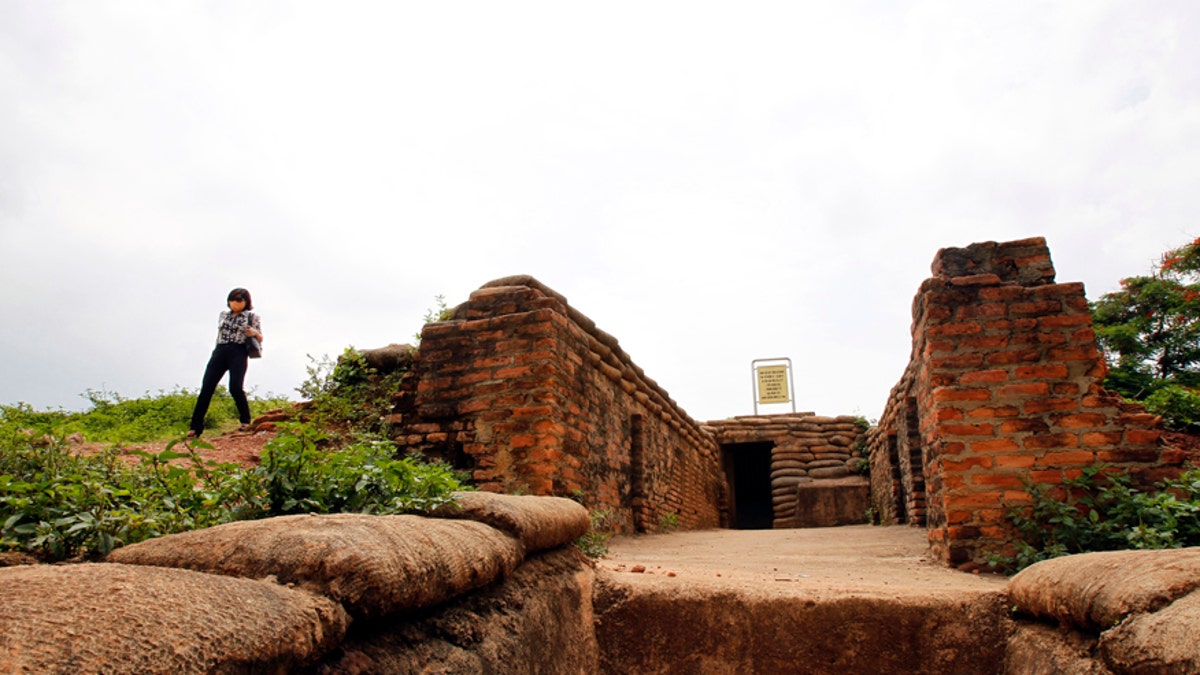
A tourist visits the historic site A1 (Elian II) hill in Dien Bien Phu city in Vietnam. (Reuters)
In my recent trip to Vietnam, I wanted to remove myself from my title as president of York College of Pennsylvania and simply see the students accompanying me on the trip as peers.
Given my position on campus, I could have easily been considered an interloper on vacation simply there to see the sites. Or perhaps, an embedded administrator attempting to evaluate our study abroad program. Neither was the case, however. I simply wanted to become a student myself again, and more fully understand the setting of the war of my youth and it’s profound impact on my generation.
[pullquote]
In 18 days, we traveled by plane, bus, train, boat, cyclo, and tut-tut across the country. Our first stop was Chu Chi, a major tourist site that commemorates the tunnels outside of Ho Chi Minh City used by the Viet Cong to elude and attack American forces.
The site is part museum and part amusement park. Booby traps fashioned for American troops are on display and demonstrated before an astonished group of onlookers. Film and print material tell of Vietnamese heroes and heroines memorialized for the number of American soldiers they killed.
For me, a baby boomer with vivid memories of the American side of the Vietnam War, it was a very emotional visit as I thought of the many lives lost on both sides of the conflict. It was clear, that the war of my youth as it played out every evening on TV, was not the same picture seen by people here.
For many Vietnamese, the war is not forgotten but it is a thing of the past. When asked if I was an American, my affirmative response was always followed by, “We like Americans.”
As a foreigner traveling throughout the country’s rural villages and major cities, the only real vestige of communism I encountered was in Hanoi while visiting Ho Chi Minh’s tomb, home and government grounds. A government official accompanied us on our tour to ensure that the guide was sticking to the “official” Communist Party script.
One of our guides, Tuan, was a particularly valuable resource on the trip. Although he holds advanced degrees in ethnology and linguistics, his future job positions, earning power, and benefits will always suffer because he does not want to be a member of the Communist Party. It certainly is interesting hearing such an overt cause for pay discrimination, when President Obama used the State of the Union address this year to criticize our own pay gap.
So what is the value of a study abroad experience? Of course it is wonderful to see the sites, but that’s not what it’s truly about.
It is an opportunity not only to learn about another culture, but also to absorb that culture, if only for a brief period of time. It requires looking beyond the obvious, exploring nuances and questioning observations and preconceived notions.
It’s one thing to read in a book about challenges faced in a communist country, and another to look into Tuan’s eyes as he tells them to you.
I completed all of the assigned readings for the trip, as well as the assignments. The most valuable of all of them was articulating my goals for the trip, which helped me to focus on the learning outcomes of the course, as well as my own.
The week following my return from Vietnam, I traveled to Washington, D.C. for a meeting. Walking from my hotel, I passed a group of five Vietnam War veterans in what appeared to be a reunion.
I stopped briefly to thank them for their service, as I often do when I encounter servicemen and women. That day however, was an especially poignant moment, thanks to the memory of my Vietnam experience fresh in my mind.
That is the value of a study abroad experience. It only reinforces why I believe as an educator, these experiences must be part of the education we provide.
